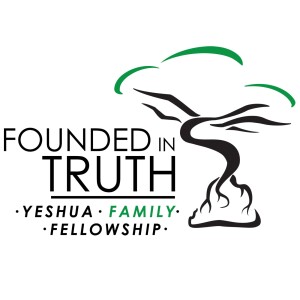

Saving Face - Part 1 - Honor & Shame in the Lives of Believers
Understanding Honor and Shame Cultures
Matthew Vander Els discusses the concepts of honor and shame, particularly in Near Eastern and Eastern cultures, contrasting them with Western guilt cultures. In these cultures, every action impacts not only the individual's reputation but also their family and community. This is a significant factor, influencing various aspects of life. Anthropologist Ruth Benedict introduced the terms "guilt cultures" (the West) and "shame cultures" (the East) during World War II to help understand different cultural mindsets.
Honor and Shame in Daily LifeIn honor-shame cultures, morality is defined by relationships and reputation rather than judicial law. Actions that bring shame affect the entire group, and maintaining a good reputation is crucial. Education is highly valued because it brings honor to the family. Social events serve as honor ceremonies, and hospitality is a way of showing respect.
- Community Focus: Prioritize the needs and honor of the group over individual desires.
- Indirect Communication: Use indirect speech to avoid conflict and show respect.
- Hospitality: Practice hospitality to honor others.
- Family Honor: Recognize that personal actions reflect on the family's reputation.
The teaching provides several examples illustrating honor and shame dynamics:
- Samurai Culture: The ritual of seppuku (self-disembowelment) was a way to restore honor after bringing dishonor to oneself and one's family.
- Biblical Examples:
- David: When David beheaded Goliath, he brought honor to Israel and shamed the Philistines.
- Saul: The Philistines dishonored Saul by cutting off his head and hanging his body on the wall of Bet-Shin.
- Joshua: Joshua hung the king of Ai to bring dishonor to Ai and honor to Israel.
- Radical Islam: Beheadings are used to shame the victims and bring honor to their cause.
- Chinese Culture: The concept of "face" is central, with actions aimed at gaining or saving face. Conformity is highly valued, as illustrated by the proverb, "The bird that sticks out gets shot."
The speaker emphasizes that the Bible, when viewed through the lens of honor and shame, reveals God's ability to transform shame into honor. Examples include:
- Adam and Eve: Their shame after sinning led to being cast out of the Garden of Eden.
- Descendants of Abraham: Their enslavement in Egypt was a position of shame, but God redeemed them.
- Yeshua (Jesus): He took on the shame of the world to redeem humanity. His resurrection was a restoration of honor.
Yeshua, as the honorable son, lived a sinless life and died to redeem His family from shame. By accepting Yeshua, believers receive His honor and become part of God's family, no longer defined by their shame.
For more Bible Teachings, click the link.
The Significance of the CrossThe cross represents the ultimate transformation of shame into honor. Yeshua took on the curse of the law, the shame of humanity, and through His sacrifice, believers are redeemed. The world is crucified to believers, and they are crucified to the world, meaning their old identity of shame is replaced by the honor of the King.
Living with the Face of YeshuaThe teaching challenges believers to recognize that their personal shame no longer defines them. Instead, they carry the honor of Yeshua. This new identity transforms how believers relate to God and the world. The speaker encourages listeners to embrace this new face of honor and to seek a relationship with Yeshua if they have not already done so.
Application for Everyday Life- Embrace Your New Identity: Recognize that your worth comes from Yeshua, not from worldly achievements or reputation.
- Minister to Others: Use the understanding of honor and shame to connect with and minister to people from different cultural backgrounds.
- Seek God's Honor: Focus on honoring God rather than seeking personal glory.
- Live a Shameless Life: Strive to live a life that reflects the honor of Yeshua, free from sin and shame.
- Genesis 3:7 - https://biblehub.com/genesis/3-7.htm
- Romans 3:23 - https://biblehub.com/romans/3-23.htm
- Ezekiel 18 - https://biblehub.com/ezekiel/18.htm
- Malachi 1:6 - https://biblehub.com/malachi/1-6.htm
- Psalm 2:6-7 - https://biblehub.com/psalms/2-6.htm, https://biblehub.com/psalms/2-7.htm
- Romans 1:4 - https://biblehub.com/romans/1-4.htm
- Matthew 16:15-16 - https://biblehub.com/matthew/16-15.htm, https://biblehub.com/matthew/16-16.htm
- 1 Samuel 17 - https://biblehub.com/1_samuel/17.htm
- Revelation 20:4 - https://biblehub.com/revelation/20-4.htm
- John 1:12 - https://biblehub.com/john/1-12.htm
- Guide to Life in Ancient Mesopotamia
- The Bible
Learn more about Founded in Truth Fellowship.
Note: This article contains affiliate links.
More Episodes
All Episodes>>You may also like
Create Your Podcast In Minutes
- Full-featured podcast site
- Unlimited storage and bandwidth
- Comprehensive podcast stats
- Distribute to Apple Podcasts, Spotify, and more
- Make money with your podcast












